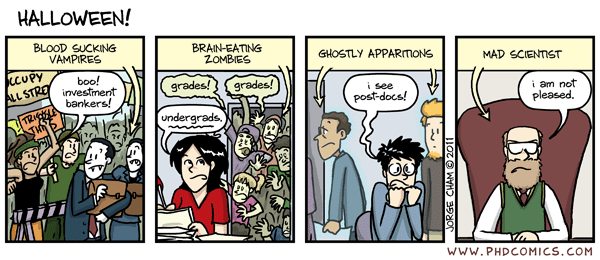This blog roundtable is part of a series about graduate school – why do it, what is it like, and what to do afterwards. I encourage you to give your own opinions in the comments section, and if you disagree with a point made by the panel, voice your opinion! This is something a lot of my readers can relate to, so I’m hoping to hear from all of you. Note that these are the opinions of those involved, and do not reflect our institutions or departments in any way. For a full list of the questions, read the first post.

“Why go did you go to graduate school?”
A question that your family and friends will ask you, and eventually you’ll be asking yourself. Why invest another 2+ years of your life in school – including postdocs this could be almost another decade before you get out into the “real world.” I google’d “Why go to graduate school” and the first few links had some common themes that emerged: what are your career goals, do you have the grades to succeed, are you motivated, among others. Some of the links were positive: Exhibit A, and Exhibit B. Some were more negative, ranging from the simple, the pragmatic, and the funny-because-it’s-true.
So lets hear from the panel!
Continue reading “Blog Roundtable: Why did you go to Graduate school?”




